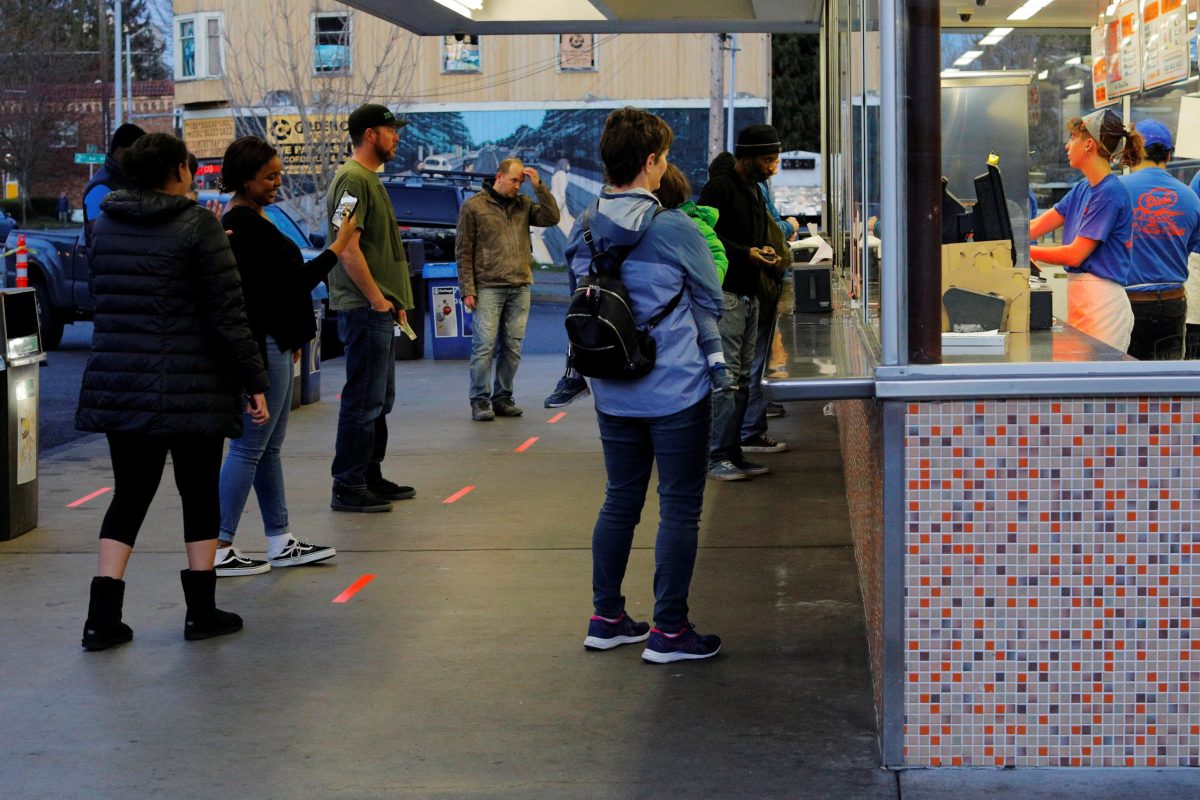By Doina Chiacu and Susan Heavey
U.S. health officials on Wednesday appealed to youth to “do their part” by heeding guidelines on self-isolation to blunt the coronavirus outbreak and warned that the White House may have to extend its action plan if 15 days proves insufficient.
“Fifteen days is likely not going to be enough to get us all the way through, but we really need to lean into it now so we can bend the curve in the 15 days, and at that point we’ll reassess,” U.S. Surgeon General Jerome Adams told NBC’s “Today” program.
“If we can get America to all pitch in for the next 15 days, we can flatten the curve … not overwhelm our healthcare system and hopefully get through this.”
The renewed warnings followed Tuesday’s announcement that the Trump administration would seek a $1 trillion stimulus package, possibly to include $1,000 direct payments to individual Americans.
Also on Tuesday, New York Mayor Bill de Blasio said he was considering more drastic measures such as ordering the city’s 8.5 million people to “shelter in place.”
The virus has spread to all 50 states and the death toll surpassed 100 with more than 6,400 Americans infected, prompting a more serious tone from the White House and local officials across the country.
The warnings that Americans may need to remain vigilant beyond 15 days came after the White House on Monday issued guidelines under the rubric “15 days to slow the spread.”
Even with vigilance, the healthcare system ran the risk of running out of devices such as ventilators and respirators, health care officials have said.
U.S. Vice President Mike Pence, who leads the administration response, repeated the call for 15 days of concerted action but said the effects would likely linger until midsummer.
“We fully expect that we will be dealing with the coronavirus in the United States for months,” Pence told National Public Radio in an interview that aired on Wednesday.
Meanwhile, health officials were responding to reports that younger people across the country were defying official guidelines about staying home and avoiding large gatherings, increasing the risk of spreading the virus.
GRAPHIC: Tracking the spread of the global coronavirus – https://graphics.reuters.com/CHINA-HEALTH-MAP/0100B59S39E/index.html
Seema Verma, head of the U.S. Centers for Medicare and Medicaid Services, emphasized that people who do not show any symptoms could spread the virus to others who are more vulnerable, especially the elderly and those with underlying health conditions.
“It is incumbent on every single American to do their part, even that millennial generation,” Verma told CNBC.
She acknowledged it was difficult for teenagers and young adults to self-isolate, but said, “The reality is if they don’t do that, they could be contributing to the spread of the virus.”
Michigan Governor Gretchen Whitmer said a 5-year-old has tested positive for coronavirus in her state. “This is a situation that impacts everyone in every age group and I implore people to take this seriously,” she told CNN.
Between calls for social distancing, policymakers were considering a raft of fiscal measures to counter the economic contraction that is expected to accompany the preventive measures.
Trump promised Americans would soon see money to help offset the economic pain of the seismic closures across the country, although Congress has not yet finalized a multibillion-dollar emergency bill, with any cash payment likely to be part of a subsequent package.
“For the people that are now out of work because of the important and necessary containment policies, for instance the shutting down of hotels, bars and restaurants, money will soon be coming to you. The onslaught of the Chinese Virus is not your fault! Will be stronger than ever!” Trump said on Twitter.
Trump said he would hold a news conference related to the Food and Drug Administration and the coronavirus but gave no details. The White House task force daily news conference was scheduled for 11:30 a.m. (1630 GMT).
Lawmakers in Washington were working to overcome partisan gridlock and pass legislation to limit the economic damage.
The Republican-controlled Senate was due to take up a package on Wednesday that bolsters safety-net programs and provides free testing for the respiratory disease.
The Democratic-led House of Representatives passed the package by an overwhelming bipartisan margin on Saturday.
Senate Republican Leader Mitch McConnell was urging his colleagues to approve it quickly, despite their qualms.
“Gag and vote for it,” he said on Tuesday.



































